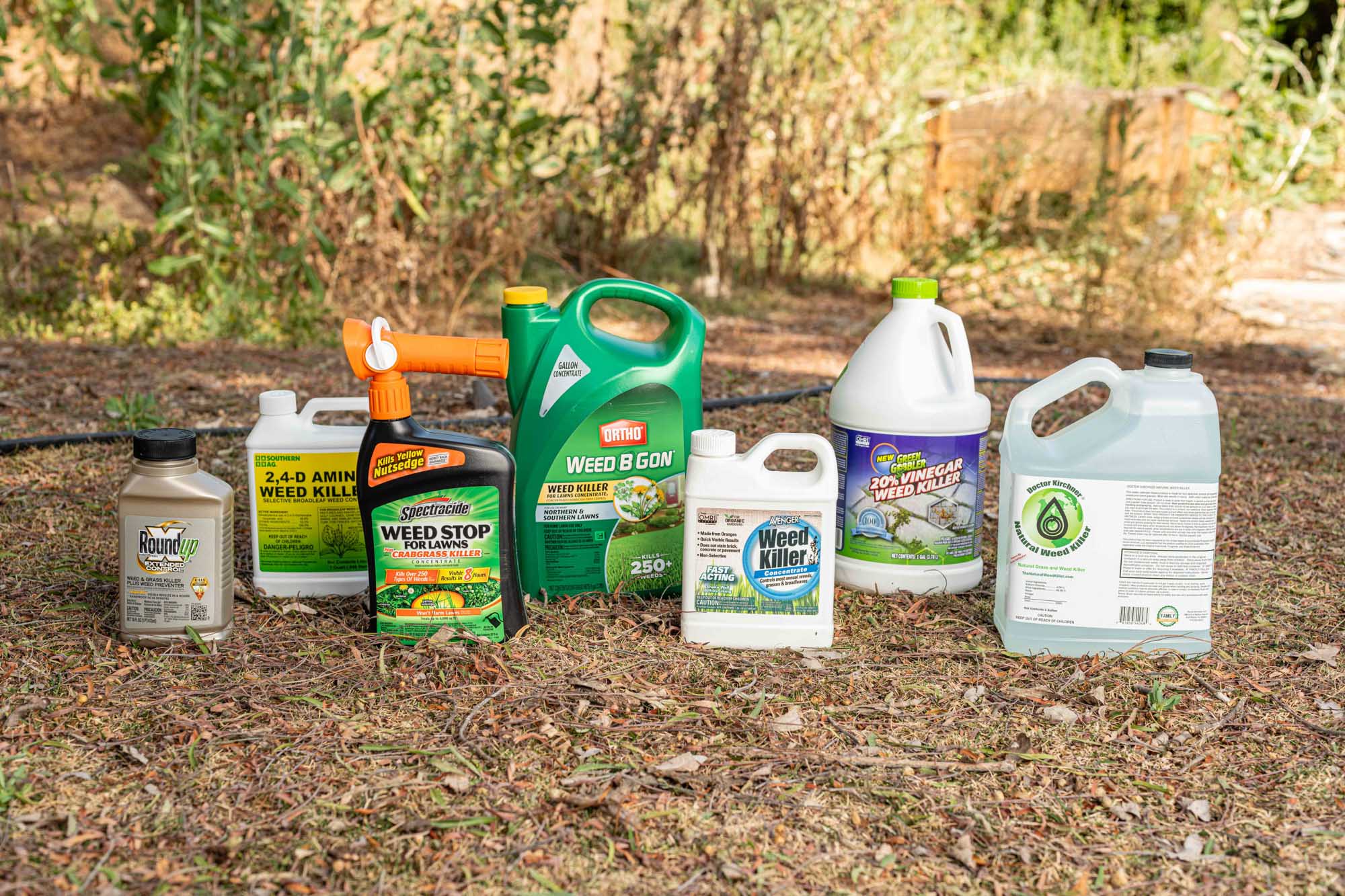 You crouch down and pull the weed, however then notice that a number of extra weeds have popped up. Several commercial products promise to prevent or kill weeds, however chances are you'll prefer a extra pure, homemade method.
You crouch down and pull the weed, however then notice that a number of extra weeds have popped up. Several commercial products promise to prevent or kill weeds, however chances are you'll prefer a extra pure, homemade method.
Vinegar and Salt
A mix of 1 gallon of distilled white vinegar, 1 cup of table salt and 1 tablespoon of dish soap in a plastic tank sprayer makes an effective homemade weed killer. The acidity in vinegar causes the leaves to break down when it's sprayed immediately on any plant. It additionally depletes magnesium from the soil. Take care to avoid spraying on the plants you need to keep because this
natural weed killer will damage or kill all plants it comes in touch with. Also, avoid spraying the same spot a number of times if it has not rained in a while. The salt on this
weed killer may sterilize the encircling soil if there has not been sufficient rain to wash it away.
Corn Gluten Meal
Corn gluten meal suppresses seed germination, so it is right for preventing weed seeds from sprouting. Sprinkle the meal on backyard beds that don't have any present weeds. It's not a problem if the cornmeal comes in contact with the plants. Its weed-killing properties have an effect on only seeds that might need been in the surrounding soil or mulch. When you have planted seeds in such an area, avoid applying corn gluten meal till after they've sprouted.
Molasses Solution
One weed specifically, Cyperus esculentus, or yellow nutsedge (sometimes known as nutgrass), grows relentlessly throughout the United States in U.S. Department of Agriculture hardiness zones four by way of 9. The yellow nutsedge is prone to therapies of molasses. Prepare a solution of 1 gallon of water to 1 cup of molasses and pour directly onto the nutsedge. After two or three functions, the nutsedge will shrivel and die, studies the Organic Authority website. An additional benefit is that molasses acts as a fertilizer for many different plants.
Baking Soda
For weeds that develop between pavement cracks or stepping stones, try sprinkling baking soda and sweeping it into the cracks. Baking soda contains a considerable amount of sodium, which can sterilize any soil and forestall anything from rising there. This treatment must be repeated after it rains. Avoid using an excessive amount of, as it may have an effect on surrounding soil if the baking soda accumulates.
 You crouch down and pull the weed, however then notice that a number of extra weeds have popped up. Several commercial products promise to prevent or kill weeds, however chances are you'll prefer a extra pure, homemade method.
You crouch down and pull the weed, however then notice that a number of extra weeds have popped up. Several commercial products promise to prevent or kill weeds, however chances are you'll prefer a extra pure, homemade method.